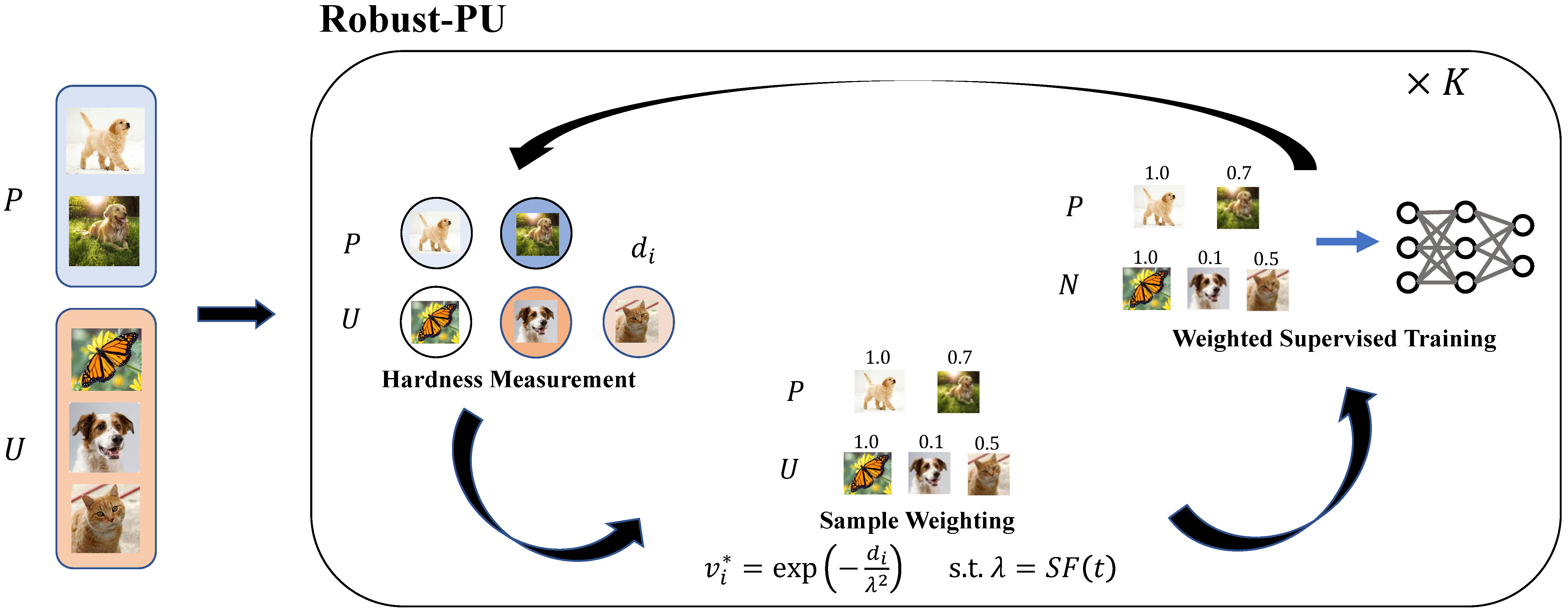This repo contains the official PyTorch code for Robust-PU.
We utilize a novel "hardness" measure to distinguish unlabeled samples with a high chance of being negative from unlabeled samples with large label noise. An iterative training strategy is then implemented to fine-tune the selection of negative samples during the training process in an iterative manner to include more "easy" samples in the early stage of training.
Python 3.9
-
conda install pytorch torchvision torchaudio cudatoolkit=11.3 -c pytorch
-
pip install -r requirements.txt
To train the model on MNIST with prior 0.6:
python main.py --dataset mnist --prior 0.6 --pre_lr 1e-3 --pre_epochs 100 --pre_batch_size 128 --pre_wd 1e-4 --lr 1e-2 --inner_epochs 20 --wd 0 --batch_size 64 --scheduler_type_n linear --alpha_n 0.11 --max_thresh_n 1.0 --grow_steps_n 5 --temper_n 1.3 --scheduler_type_p linear --alpha_p 0.1 --max_thresh_p 1.0 --grow_steps_p 5 --temper_p 1.0 --hardness logistic${scheduler_type_n}: const, linear, convex, concave, exp
${scheduler_type_p}: const, linear, convex, concave, exp
${hardness}: logistic, sigmoid
If you have any question, please feel free to contact the authors. Zhangchi Zhu: zczhu@stu.ecnu.edu.cn
If you find our work is useful in your research, please consider citing:
